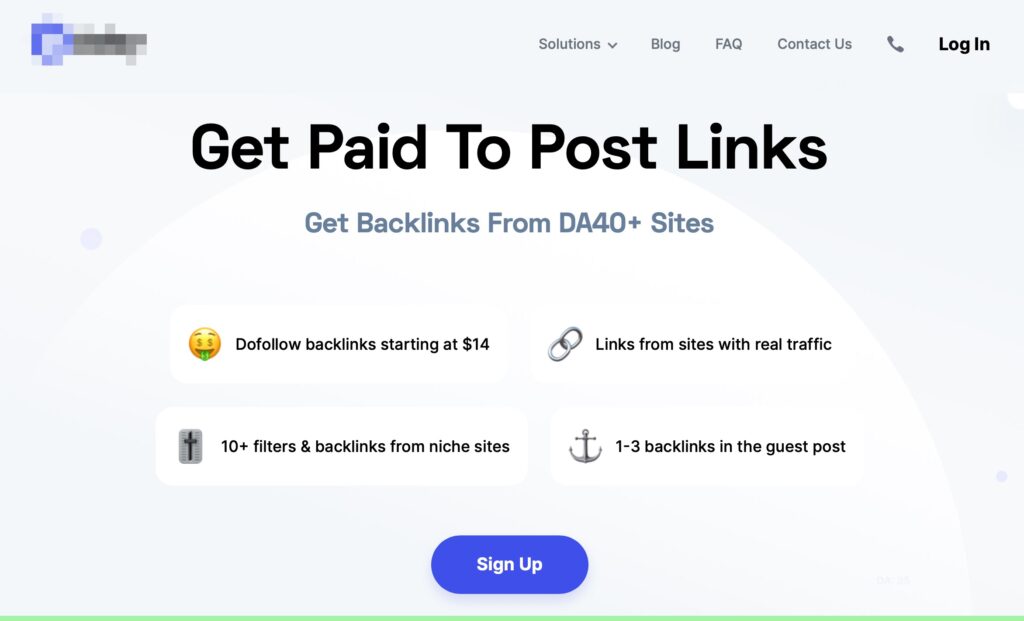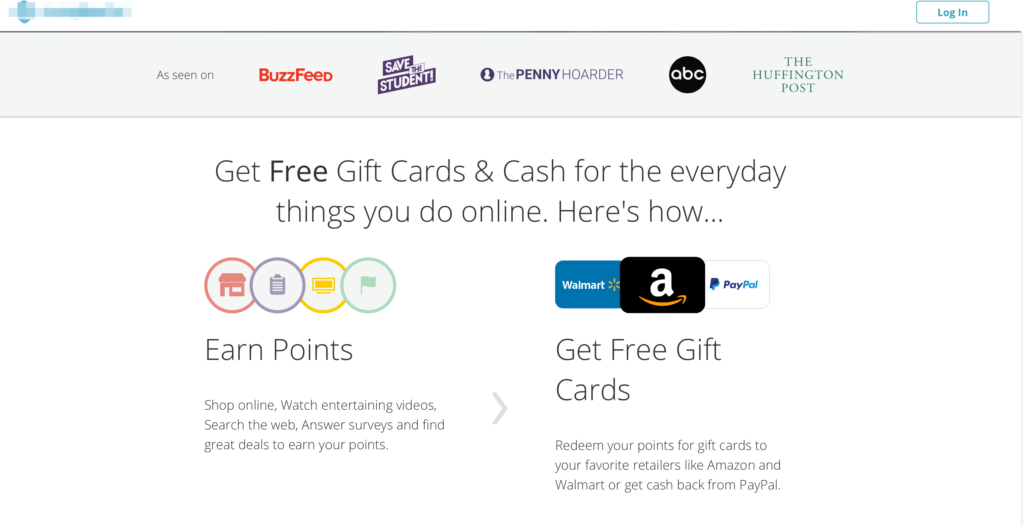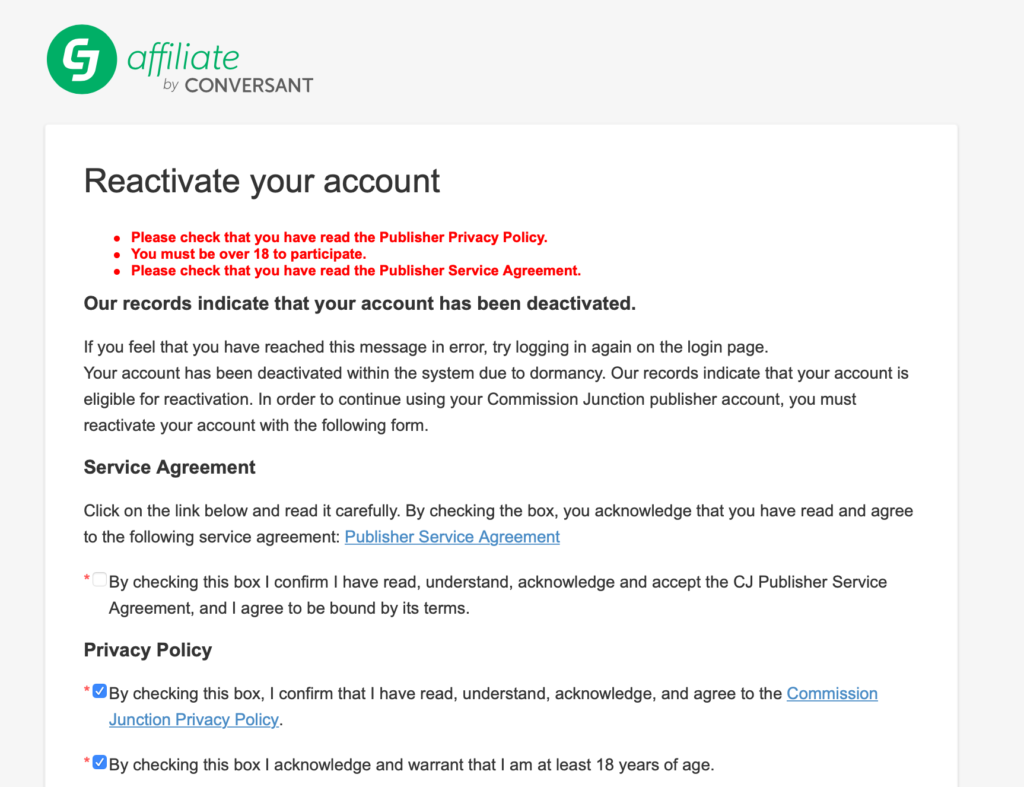Read this guide for everything you ever wanted to know about link posting. How this can help or hurt your site and clever tips to navigate the traps in sharing links to make money.
Site owners looking to get paid to share links are quick to get involved in what seems like a fast way to make cash… but caution is advised. And if you’re not fully informed, you could place your site at significant risk.
Let’s begin
There are many companies interested in obtaining links from sites and operate with differing levels of efficacy – this guide helps prepare you to assess the best opportunities for effective link posting.
Link posting has been portrayed as an easy way to make money from home just by using a PC and an internet connection.
Unfortunately, most of the sites or offers related to link posting will hurt your site and cause your site damage in the long run. While wanting to get paid to advertise on your site is important for many business owners, as running a site isn’t free right Unless you are really knowing what you are doing it’s often best to know exactly what you are getting yourself into beforehand. The best advice is to stay away from link posting altogether.
Below is an example ‘squeeze’ page that providers use to get you excited to get in bed with them.

Job Advertisement Link Posting
This is one of the more darker sites of link posting, a ‘work from home’ scam that it’s important to be aware of. These come about when a job advertisement requires you to post links online for them on different websites, blogs, forums, etc. These links are usually accompanied by meaningless text with the only intention to direct traffic back to a particular page specified by the company.
Link posting scammers lure people in by promising big money for just posting links. They even sell interested candidates “training packages” for recruits to get up to speed to getting paid to share links. This is the biggest alarm for you to grab your stuff and go. You should never have to pay to get a job.
Here is another provider while, in our opinion, a legitimate business, is one that is engaged in encouraging users to post links.

These scams go as far as employing telemarketers to call and try to convince each candidate to join or upgrade. These types of scams are everywhere and have been around since the internet was invented. See more from the FTC about these scams.
These “businesses” are able to continue to trick people because they constantly close and re-open new versions of the scam, this makes it very hard for authorities to crack down on them, and for reviewers to stay on top. Some large companies such as Facebook have been able to limit the amount of opportunities for getting paid to post ads on Facebook.
If you have a website with a decent amount of traffic, you might also be asked to get paid to post links on your site. This is totally fine but beware of the links you post on your site because a link to a scam or a bad product will damage your reputation and might even get you penalized.
Legit Link Posting Alternatives to Make Money Online
Most people fall into these traps because they’re looking for easy ways to make money fast, and that is just not how real life works. Seems too good to be true right.. posting links from home and receiving huge sums of money.. Usually if something sounds too good to be true then it generally is.
There might be some legit link posting jobs out there, but the matter of the fact is that the earnings, as appealing as they may seem, are just simply not worth it. There are all sorts of consequences of dealing with companies that pay you to post links – the consequences of doing this include suspension of your accounts, and blocking of your IP address and phone number to stop you from creating more accounts, among others.
On the other hand, if you really want to build an online business where you can have a relatively decent income, consider affiliate marketing and strengthening your digital properties by exchanging guest posts and links with relevant websites. If you care about your site’s SEO – a great rule of thumb is to avoid accepting money for posts on your site. If you believe someone is offering you a genuine guest post opportunity that will offer value to your readers then by all means go ahead – however companies that offer those services are hard to come by.
How does Affiliate Marketing Work
Affiliate marketing is a great way to make money online and is somewhat different from the paid to post schemes. However, it requires you to invest time and resources. The basic premise of affiliate marketing is that an online retailer or an e-commerce business pays you a commission for traffic or sales generated from your referrals through special links provided by the company.

This means you need to build and nurture a marketing plan that builds an audience or community of followers, AKA valuable traffic, around you and your website and social media. This network of influence will allow you to get regular high-volume traffic that clicks on your affiliate links and actually makes a purchase, thus you earning a commission. Usually affiliate marketing requires an existing skill, so if you are not a savvy digital marketer or have a network of customers to tap into – you can forget about this one.
You’ll need to meet minimum yearly volumes with some affiliate networks, otherwise you risk being limited in your ability to use the platforms, here is one example below

There are tons of people making money like this, but there are even more people that fail in the effort. Why? Because they want an easy income source without realizing the amount of work this really requires.
Guest Posting: How to Do it Right
Guest posting entails writing content for another website as a guest, just like the name implies. Guest bloggers look for websites in their industry or niche that have good traffic and decent domain authority and offer to write a guest blog in order to:
- Attract traffic back to their website
- Boost their domain authority using external links to high-authority domains
- Increase their brand credibility and awareness
- Build relationships with peers in their industry.
Let’s explore the benefits of guest blogging and then we’ll dive right into some tips to building your own guest posting strategy to help with search engine marketing.
Benefits of Guest Blogging
Guest blogging is a great tool to strengthen your brand and grow your online community. The benefits of a robust guest posting strategy include:
- Build your brand authority and thought leadership by sharing your expertise on other relevant websites.
- Build and strengthen your network and relationships with other thought and industry leaders.
- Expose your audience to new perspectives and opinions that add value to their journey.
- Expose your brand to entirely new audiences.
- Boost your reach by tapping into new social media audiences
- Build backlinks that boost your site SEO
Building a good outreach strategy and having relevant content are crucial aspects to consider for guest posting. Let’s examine some best practices in a bit more detail.
The whole aim of doing guest posting well is to receive lots of quality links to your site… only aim for quality links and aim for a mix of .edu and .com’s

Eight Tips to Build a Winning Guest Posting Strategy
Like any strategy, your guest posting efforts need to follow a clear plan with clear goals, expectations, and standards for deciding which opportunities are best for you.
There is one highly important best practice that is sometimes overlooked and can be very damaging to the quality of guest posting. This is involving money in any way during a guest posting negotiation.
Guest posting should always be about giving more value to the audience by sharing high-quality content. The currency exchanged is traffic, authority, relationships, value for the readers.
That’s why you should never accept nor offer any money for guest posting. This should focus on the content, not on a monetary transaction.
To build an effective guest post strategy, follow these eight tips:
1. Determine your guest posting goals
Outlining clear goals will help you paint a clear plan that should help you get there, just like with any smart marketing strategy.
Regardless of the results, your goals will help you measure your success. Here are some of the most common goals for you to consider:
- Increase brand awareness.
- Introduce your products and services.
- Showcase your expertise and how you can solve your audience’s problems.
- Improve visibility on social media.
- Boost your SEO metrics.
- Build industry authority and thought leadership.
- Increase traffic and consequently Increase leads.
Make sure you prioritize those guest blogging opportunities that bring you closer to your goals.
This site below has a great DA and quality score… and would be a good pick if you were in the architectural space

2. Find guest post opportunities
The best opportunities for guest posting are those sites that your audience already visits frequently. To find them, conduct some research to discover the sites that:
- Interest and attract your audience.
- Are similar to your ideal guest posting sites.
- Your competitors are posting in.
There are a number of popular tools that can be used for this purpose. Don’t worry if you haven’t got a paid subscription for them, below are a list of tools with free versions or tools that are completely free
Finding a lot of potential opportunities is great. But you need to filter those candidates to find the ones with the most potential.
Industries play a part too… see below the average number of links for sites in the real estate industry vs home improvement
3. Qualify guest posting sites
To qualify your prospects, create a list of criteria they have to meet in order to be aligned with your strategy and your goals.
Filter your candidate websites accordingly and you’ll have a winning list in no time. Popular filters can include domain authority, the similarity with the sites content to your own.
Beware of .blogspot or other sites… they’re worthless to you as in below

4. Develop blog post topics
While brainstorming and developing your blog topic ideas, take into consideration not only your goals and audience but also take into account what your publisher’s audience wants.
You might find come content gaps you could fill with your awesome content.
5. Create the perfect pitch
Negotiating a guest post is not always easy and straightforward. To catch the attention of the owner or publisher of the site and be considered for a guest post, you should build a killer pitch.
Pro tip: Sites receive unsolicited offers daily for posts – think of ways to stand out! A creative pitch goes a long way.
These are the most important aspects to consider when creating your pitch:
- Do some research and find the right person to contact.
- Read and understand the site’s guest posting guidelines, if they have them.
- Write a compelling email that is not promotional, but that is personal and communicates the value of the potential guest post.
- Share other guest posts you’ve written.
When ready, it’s time to get down to the writing part.
6. Write a post worth publishing
It’s important to keep in mind that acceptance of your pitch doesn’t necessarily guarantee the publication of your post. You need to deliver on your promise of a blog post that adds value to the site hosting it and the audience reading it.
So, make sure your content is top quality, and:
- Follow the guidelines of the particular site you’re looking to feature on
- Don’t be overly promotional and focus on adding value.
- Proofread and check for errors more than once.
- Add a link or two back to your website, depending on the agreement.
- Include a writer’s bio that adds to the article and invites the readers to learn more.
7. Follow up on your work
Think getting a placement live is the end of the journey? It’s only just the beginning! Having your blog published is not the end of your strategy. It makes good sense to follow up on that post to help distribute and promote it and to nurture your relationship with the publisher for potential future guest posts.
Where to share your content?
This step requires you to:
- Share the post on your social media profiles.
- Engage with your audience’s comments.
- Link to it in your own content.
8. Track your results
Create a spreadsheet with your guest posts where you can track relevant KPIs to measure the success of your campaign and, most importantly, your campaign’s ROI.
Some metrics to consider include:
- Amount of referral traffic
- Number of new website visitors
- Number of social shares
- Number of comments
- Changes in SERP placement
- Number of new leads
- Number of brand mentions or links
Measuring your KPIs will help you determine what guest posts are bringing in the best results and help you craft with any guest posting you’ll be looking to do down the road your future guest posting efforts.
Links are the Currency of SEO
As you can see, links are very valuable regarding search engine optimization (SEO) and there are many ways to use them to boost your metrics and even your revenue.
Be smart as how you use them and always make an effort to do so with the advancement of the entire industry in mind.
